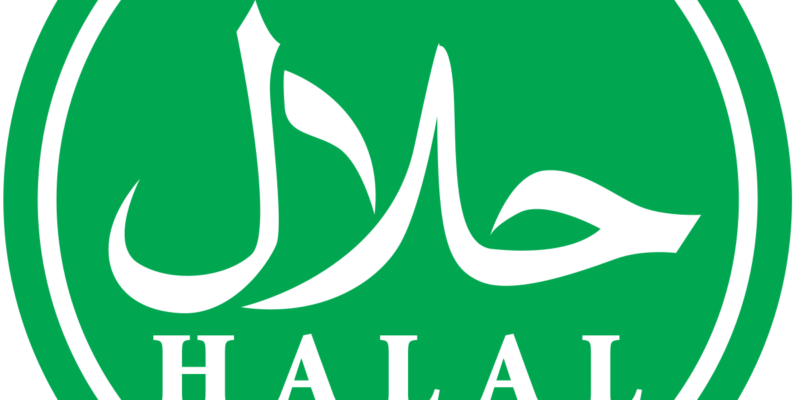Halal certification plays a crucial role in ensuring that products meet the dietary and ethical standards outlined in Islamic law. For consumers, manufacturers, and retailers, understanding Halal certification is vital for ensuring compliance with religious guidelines. In this guide, we will explore what Halal certification is, why it is essential, and the process involved in obtaining it.
What is Halal Certification?
Halal certification is an official confirmation that a product or service adheres to Islamic dietary laws and ethical practices. The word Halal itself means “permissible” in Arabic. In the context of food and beverages, Halal certification ensures that the product is free from any ingredients or processes that are forbidden (Haram) under Islamic law, such as pork or alcohol.
The certification process is carried out by Halal certifying bodies that inspect products, ingredients, and manufacturing processes to verify their compliance with these standards. This certification applies not only to food and drinks but also extends to cosmetics, pharmaceuticals, and even services like financial products.
Why is Halal Certification Important?
1. Ensures Religious Compliance
For Muslims, adhering to Halal practices is a core aspect of their faith. Halal certified products give consumers peace of mind knowing that they are purchasing items that are in line with Islamic law.
2. Expands Market Reach
Halal certification opens doors to a global market. With millions of Muslims worldwide, businesses that earn Halal certification can tap into this lucrative demographic. Offering Halal-certified products not only ensures compliance with Islamic principles but also helps businesses expand into Muslim-majority countries or Muslim consumer bases in other regions.
3. Promotes Ethical Standards
The process of obtaining Halal certification often includes guidelines on ethical treatment of animals, fair labor practices, and environmentally friendly production methods. These principles benefit both businesses and consumers who are looking for products that are ethically sourced and produced.
4. Consumer Confidence
For Muslim consumers, knowing that a product is Halal certified eliminates doubts regarding its compliance with religious rules. Halal certification fosters consumer trust and loyalty.
The Halal Certification Process
The process for obtaining Halal certification involves several steps, typically carried out by a recognized Halal certifying body. Here is a general overview:
1. Application Submission
Businesses must apply to a Halal certification authority, providing information about their products, ingredients, and production processes. This often includes details about the source of raw materials, processing techniques, and packaging.
2. Inspection and Auditing
A comprehensive audit is conducted to assess the facilities and practices. Inspectors may visit the production site to ensure compliance with Halal standards, including reviewing the sourcing of ingredients, equipment cleanliness, and the handling of potential cross-contamination with non-Halal products.
3. Approval and Certification
Once all requirements are met, the Halal certifying authority issues the certification. The product can then carry the Halal logo, signaling its compliance with Islamic law.
4. Ongoing Monitoring
After certification is granted, regular audits and inspections ensure that businesses continue to meet Halal standards. Certification is usually renewed periodically.
Common Halal Certification Standards
While each certifying body may have specific guidelines, there are common standards followed by most Halal certification organizations:
- No Haram Ingredients: The product must not contain any prohibited (Haram) ingredients, such as pork or alcohol.
- Ethical Sourcing: The ingredients must be sourced in a way that respects Islamic ethics, including humane treatment of animals.
- Separation of Halal and Non-Halal Products: To prevent contamination, Halal-certified products must be produced in facilities that have a strict separation from non-Halal products.
- Alcohol-Free: Halal products must not contain alcohol or intoxicating substances in any form.
FAQs About Halal Certification
1. What is the difference between Halal and Haram?
- Halal refers to what is permissible or allowed under Islamic law, whereas Haram refers to what is forbidden. The distinction is crucial in determining what foods, drinks, and practices Muslims can engage in.
2. Can non-Muslims obtain Halal certification?
- Yes, non-Muslim businesses can apply for Halal certification, as long as they meet the required criteria and follow the necessary standards.
3. Is Halal certification only for food products?
- No, Halal certification extends to a variety of products, including cosmetics, pharmaceuticals, and even financial services that comply with Islamic principles.
4. How do I know if a product is Halal certified?
- Look for a Halal certification logo or symbol on the product packaging. This logo signifies that the product has been verified and complies with Halal standards.
5. Is Halal certification recognized worldwide?
- Yes, Halal certification is recognized globally, especially in countries with significant Muslim populations. It is also increasingly recognized in non-Muslim countries due to growing demand for Halal products.
Conclusion
Halal certification is more than just a label; it represents a commitment to religious, ethical, and quality standards. For consumers, it offers reassurance that products align with Islamic dietary laws, while businesses can benefit from reaching a broader market. As demand for Halal-certified products continues to grow, understanding this certification’s importance becomes more crucial than ever for both consumers and producers alike.
